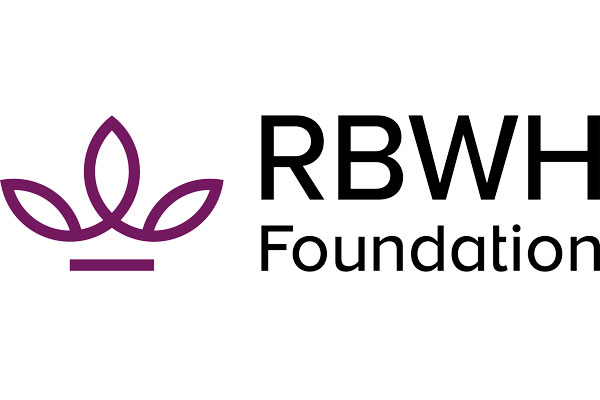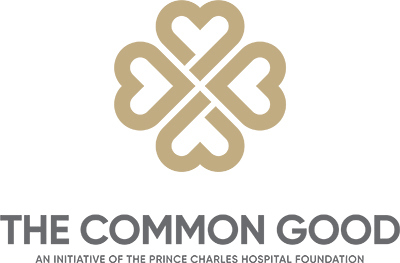The awards attracted 71 phenomenal submissions and showcased the diverse and far-reaching research projects conducted by individual researchers and teams from across Metro North.
Research is vital in driving change in clinical practice to improve patient outcomes, and it was a difficult task to select 20 finalists across seven categories.
Congratulations to the winners and highly commended recipients.
2022 Researcher of the Year
Winner, Professor Steven Lane
Changes within the DNA of blood cancer cells cause cancer and control its progression through various stages of disease and the response of patients to treatment. It is fundamentally important to not only understand these genetic changes at the molecular level, but also to use these findings to rationally design clinical treatments that target these genetic changes to improve outcomes for patients with blood cancers.
Professor Steven Lane and members of his research team have made many fundamental discoveries about how blood cancers form from normal blood cells, how cancer evolves additional genetic changes to become more aggressive or resistant to treatment, and how targeted drug treatments might be used to improve survival for patients with blood cancers. Importantly, he has developed a national framework for genetically targeted treatment for patients with blood cancers to offer new treatments for patients.
Researcher Support Award
Winner, Professor Merrilyn Banks
In addition to her role as Director Nutrition and Dietetics RBWH, and clinical work in the area of ICU and Burns, Professor Merrilyn Banks has demonstrated excellence and leadership in research support and capacity building within Metro North. She has strategically led and built a culture of integrated clinical and translational research within her Department, with the influence of this progressive research program extending beyond nutrition and dietetics across RBWH and Metro North.
Furthermore, the outcomes of the research program, which comprise extensive national and international collaborations, have ensured the peer review of and international influence on contemporary clinical care. Highlights of Professor Banks’s leadership in supporting research includes strategic role redesign to invest in the support of research development, commitment to operational research time targets, development of university conjoint positions, and a variety of support strategies for novice researchers including the creation of the first new graduate research pathway in Nutrition and Dietetics.
Highly Commended – Professor Norm Morris
Rising Star Award
Winner, Associate Professor Peter Lazzarini
Peter’s career is motivated by the goal of ending avoidable amputations within a generation of people with diabetic foot disease. Peter completed his PhD in 2016, and is currently a conjoint Principal Research Fellow leading the Queensland Health and QUT Foot Disease Research Program. Prior to his research career, Peter was a nationally regarded podiatrist with more than 12 years of clinical foot disease experience. He is now regarded as a rapidly emerging international research leader in the field of diabetes-related foot disease. Peter holds a NHMRC Early Career Fellowship and, according to Expertscape, is ranked the leading diabetes-related foot disease researcher in Australia and 20th internationally, up from 40th in 2019.
Highly commended – Dr Thuy Frakking
Clinical Research Award
Winner, Puzzling: Probiotics and Preeclampsia
While conducting an NHMRC funded randomised controlled trial assessing whether probiotics prevent gestational diabetes in overweight and obese women, the research team made a new discovery. Although the study did not show any benefit with probiotics for gestational diabetes prevention, they did notice a trend towards an increased incidence of hypertension in pregnant women. Medical student Sarah Davidson from Duke University conducted a Cochrane review to confirm that probiotics are associated with an increased rate of hypertension in pregnancy. For the first time, the team has demonstrated that probiotics are not safe in overweight and obese pregnant women.
Highly commended – Associate Professor Tanya Kairn
Complex Health Challenges Research
Winner, Redcliffe Hospital Intensive Care Unit – excellence in interdisciplinary research to benefit patients and families
The Redcliffe Hospital Intensive Care Unit’s active research team has made significant gains with local, national, and international research which improves outcomes for critically ill patients and their families. The interdisciplinary research team are leaders and collaborators addressing a range of complex health challenges, including management of sepsis and blood stream infections, COVID-19, ICU environmental design and visiting practices, post-ICU follow-up and strategies to address post-intensive care syndrome.
Dr Alexis Tabah is lead investigator on the largest study ever to be conducted on hospital-acquired blood stream infections, and has led the development of evidence-based guidelines for antibiotic de-escalation. This research group is actively involved in multidisciplinary clinical trials on early mobilisation, nutrition, and antibiotic management. They conduct numerous other local research studies, epidemiological analyses and audits, such as management of phosphate abnormalities and continuous renal replacement therapy, supporting involvement of novice clinician researchers.
Discovery and Innovation Research Award
Winner, Cancer Care Services, RBWH – Safer, more accurate and more comfortable radiotherapy through 3D printing
The Cancer Care Services 3D printing research team at RBWH has developed techniques and technologies for using 3D printing to make many radiotherapy treatments safer, more accurate and more comfortable for patients. Collaborations with Metro North Health’s Herston Biofabrication Institute and others have helped to rapidly translate these developments into clinical practice. To date, more than 100 patients have benefited from customised 3D-printed radiotherapy boluses that are verified using quality assurance tools designed at the RBWH.
Cancer Care Services at RBWH was the first clinical department to be listed on the TGA’s Australian Register of Therapeutic Goods, as a point-of-care manufacturer of patient-specific 3D-printed treatment devices, resulting in members of the team being frequently invited to share their expertise with other departments and at conferences. Since 2020, the group has published 15 peer-reviewed papers, supervised multiple students from UQ and QUT, and been awarded three ‘best presentation’ prizes. It has also attracted media coverage on the ABC news website.
Health Services and Implementation Research Award
Winner, Eat Walk Engage: preventing delirium and improving hospital care for older Queenslanders
Delirium affects up to 30 percent of older inpatients. It leads to longer hospital stays, higher care needs, patient and family distress, future dementia, and costs Australia $8 billion every year. Delirium can be prevented through age-friendly principles including nutrition and hydration, mobility, social and cognitive activity, but these are challenging to consistently implement in practice. Eat Walk Engage is a clinically-led improvement program that focusses on older patients and empowers staff to put age-friendly principles into practice. The program improves team communication, care practices, patient experience and staff confidence.
The CHERISH cluster trial, supported by Metro North, with national and international collaborators, proves that Eat Walk Engage significantly reduces delirium and may reduce hospital stays, rehabilitation needs, and readmissions. Through advocacy, leadership and partnerships with local clinicians and managers, the Eat Walk Engage team have led successful scale-up of the program across the State, providing better care for thousands of older Queenslanders.
Highly commended- Healthy Pregnancy Healthy Baby Research Group
Professor Joan Webster Nursing and Midwifery Award
Winner, Emily Larsen, Research Fellow – Vascular Access
Emily Larsen has been an integral part of the Nursing and Midwifery Research Centre since 2013. She has made a remarkable contribution to Nursing Research within Metro North Health, and her specialty field of vascular access (VA). Emily began her research career as a Study Coordinator and has managed over 30 studies, including two NHMRC-funded trials (one published in the Lancet). She has a strong research trajectory, publishing 41 peer-reviewed journal articles. Already, Emily has attracted over $1M in competitive research funding and received invitations to present her research internationally (USA, South America, and Europe).
Emily is a strong patient advocate, whose research focuses on patients’ experiences of intravenous access. Consequently, her research methods demonstrate extraordinary breadth, from randomised controlled trials, through to qualitative studies, and co-design (mixed/multiple-methods). Commencing her PhD in 2019, Emily is currently exploring Patient Reported Outcome and Experience Measures for peripheral intravenous catheters.
Chief Executive Award
Winner, Professor Nadine Foster
Nadine is a physiotherapist, lifetime Fellow of the Chartered Society of Physiotherapy in the UK, and previous National Institute for Health Research (NIHR) Senior Investigator and NIHR Research Professor in the UK. She is the Director of the STARS Research and Education Alliance between the University of Queensland and Metro North. She leads the Research and Education portfolio within STARS, including a team of conjoint appointments between the University and hospital, across the disciplines of physiotherapy, nursing, speech therapy and occupational therapy, interdisciplinary education and research management.
Consumer Engagement Award
Winner, Implementation of the intensive Comprehensive High-Dose Aphasia Treatment (CHAT) into clinical rehabilitation
Aphasia, which causes impairment in talking, understanding, reading and/or writing, is a devastating condition impacting approximately 30 percent of stroke survivors. Australia’s first Comprehensive, High-dose Aphasia Treatment (CHAT) program is offered to patients with post-stroke aphasia as part of their speech pathology rehabilitation at the Surgical, Treatment and Rehabilitation Service (STARS) in collaboration with The Queensland Aphasia Research Centre, University of Queensland (UQ-QARC).
The CHAT program improves access to high-quality, evidence-based, intensive rehabilitation as part of a patient’s usual care. Each patient participates in 50 hours of individualised, goal-oriented intervention delivered over eight weeks. Through the Program, participants have demonstrated significant gains in measures of everyday communication and quality of life, with consumer feedback overwhelmingly positive.



